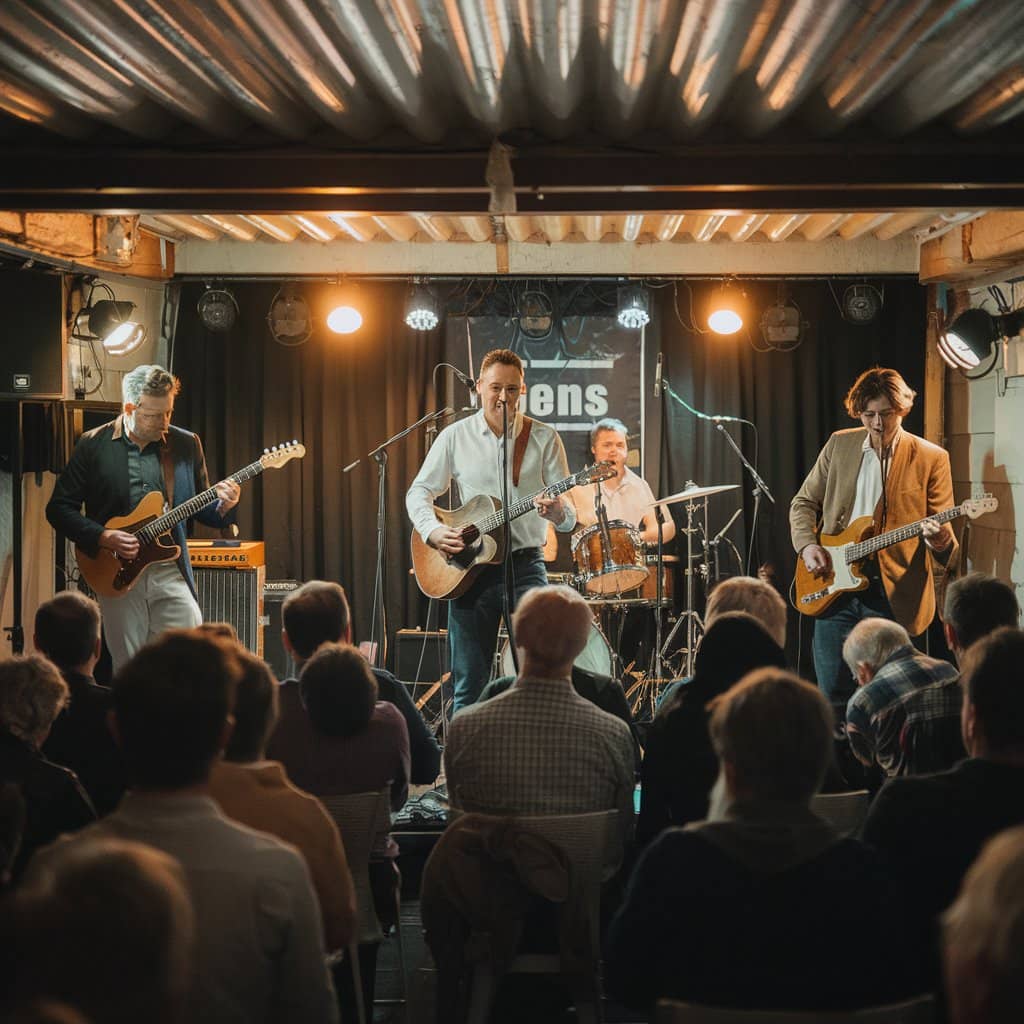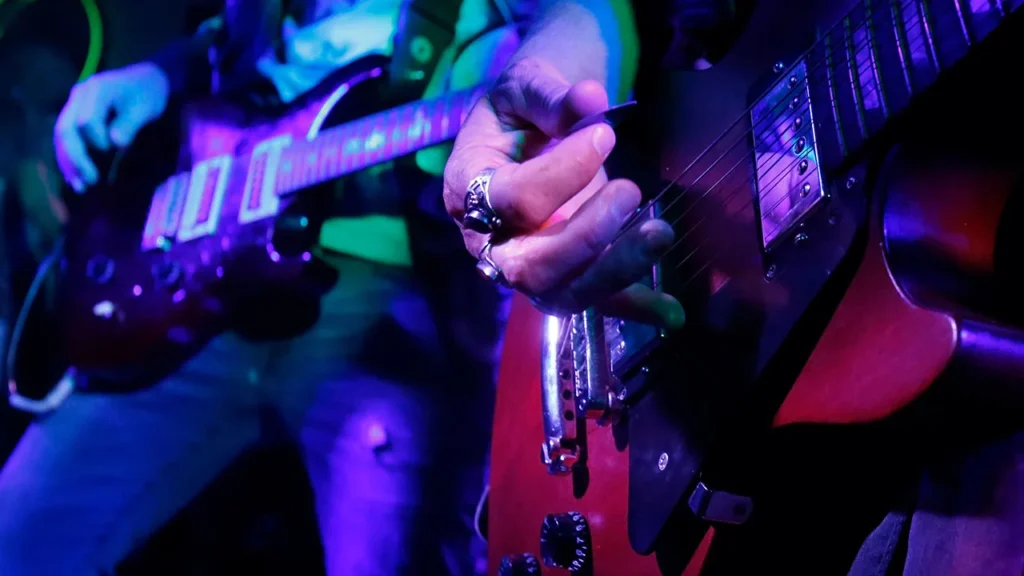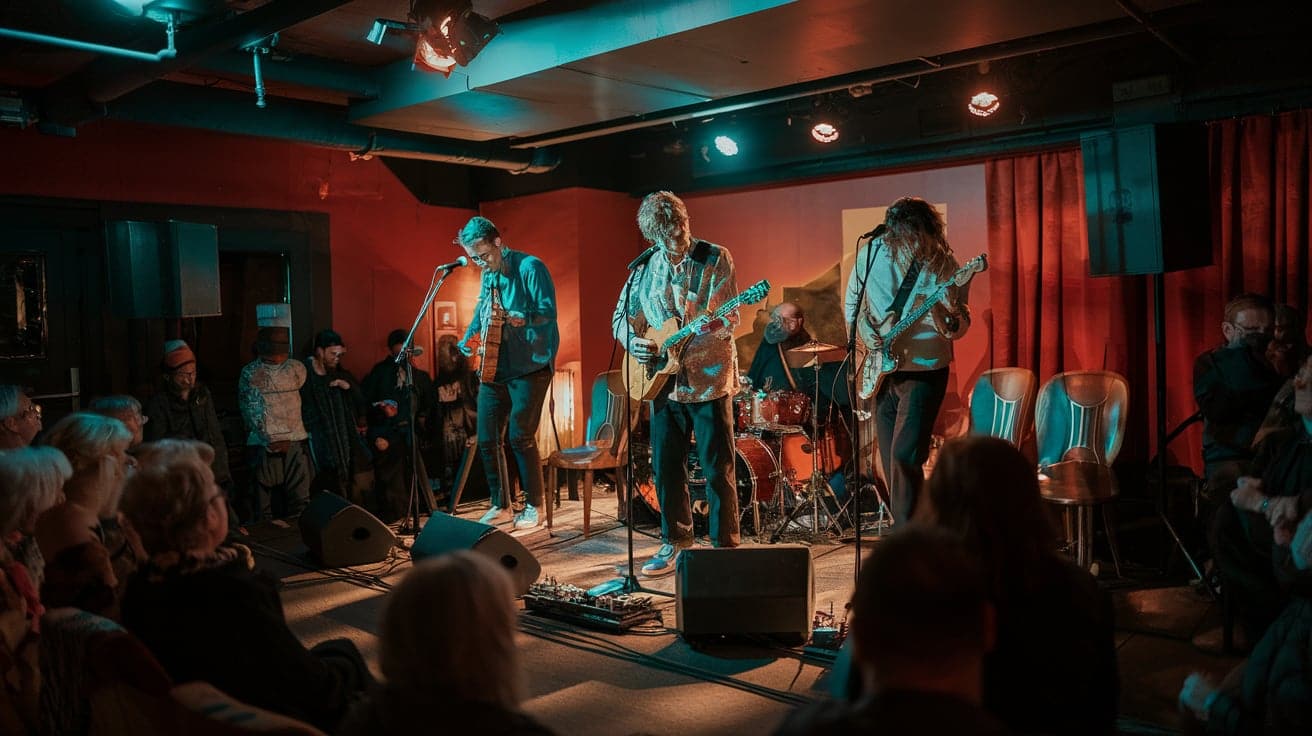WMA Live Music in Intimate Settings:A Unique Musical Experience
Experiencing live music in an intimate setting has become a growing trend, attracting music enthusiasts across the USA. Unlike traditional large-scale concerts, these performances offer a personal and immersive connection between artists and audiences. Whether it’s through house concerts, curated events by organizations like Sofar Sounds, or unique shows hosted by platforms like Airbnb, WMA live music in intimate settings creates unforgettable experiences for all involved.
In this article, we’ll dive deep into this captivating trend, exploring its benefits, history, key players, and why it resonates with audiences today. We’ll also answer frequently asked questions to provide a comprehensive understanding of this unique musical phenomenon.
What Is WMA Live Music in Intimate Settings?
At its core, WMA live music in intimate settings refers to musical performances hosted in small, cozy environments. These settings often include private homes, boutique venues, art galleries, or even unconventional spaces like rooftops or cafes. The focus is on creating a shared experience where the audience and performers connect more deeply, free from the distractions of large arenas.
The Rise of Intimate Music Performances
The idea of intimate music settings is not new, but it has gained traction in recent years as people seek more authentic experiences. The rise of platforms and organizations that champion this concept, coupled with the increasing desire for human connection, has propelled this trend into mainstream awareness.
Historical Roots
- Salon Performances: In the 18th and 19th centuries, salons were popular venues for intimate music gatherings, often held in private homes of the wealthy.
- Jazz Clubs: The mid-20th century saw the emergence of jazz clubs where small, exclusive audiences enjoyed close-knit performances.
Modern-Day Influences
Organizations like Sofar Sounds and initiatives by platforms like Airbnb Experiences have redefined intimate music by making it accessible to wider audiences.
Why People Love WMA Live Music in Intimate Settings

- Personal Connection with Artists
In these settings, audiences can see, hear, and even interact with performers in a way that feels personal. The proximity allows attendees to witness raw emotions and artistry up close. - Enhanced Sound Quality
Smaller venues often have better acoustics, enabling clearer and more authentic sound. - A Distraction-Free Environment
Without the hustle of large crowds, the focus remains entirely on the music. - Exclusive Atmosphere
With limited seating, these events often feel like private concerts, making them special and memorable. - Community Building
Intimate concerts bring together like-minded individuals who share a love for music, fostering meaningful connections among attendees.
Read More: Understanding Credit Scores And Loan Eligibility: What You Need To Know Forpchub.Com
Key Players in Intimate Music Settings
1. House Concerts
House concerts are private events hosted in someone’s home, often featuring emerging or independent artists. These gatherings create a relaxed and welcoming environment.
- Typically accommodate 20–50 guests.
- Performances are acoustic or lightly amplified.
- Hosts often invite friends and family, making it a community-driven affair.
2. Sofar Sounds
Sofar Sounds has revolutionized intimate concerts by curating secret gigs in unique locations worldwide. Known for their surprise lineups and unusual venues, they prioritize the closeness between artist and audience.
- Events occur in living rooms, warehouses, or rooftop spaces.
- Audiences are asked to keep phones off and fully engage in the experience.
3. Airbnb Experiences
Airbnb has extended its platform to include live music events. These shows, hosted in unconventional spaces, provide travelers and locals alike a chance to enjoy intimate performances.
- Focuses on cultural and unique experiences.
- Often highlights local talent.
Read: Xeiuna Overheats My Laptop – Quick Solutions to Stop It!
The Benefits of Intimate Music Performances

For the Audience
- Up-Close and Personal: Witness the artist’s expressions, techniques, and emotions.
- Interactive: Opportunities for Q&A sessions or casual chats with performers.
- Memorable: The exclusivity makes each concert a cherished memory.
For the Artist
- Direct Feedback: Artists can gauge audience reactions in real-time.
- Creative Freedom: Smaller settings allow for experimentation with setlists or acoustic arrangements.
- Connection Building: Builds a loyal fan base through genuine interactions.
Popular Genres in Intimate Music Settings
While these settings accommodate various genres, some are particularly well-suited:
- Acoustic and Folk: Perfect for stripped-down performances.
- Jazz: Known for its intimate improvisational nature.
- Indie: Emerging indie artists thrive in these close-knit atmospheres.
- Classical: Chamber music and solo performances are a staple in small venues.
Tips for Attending WMA Live Music in Intimate Settings
- Arrive Early: Seating is often limited and unassigned.
- Engage Respectfully: Be attentive and avoid using your phone.
- Support the Artist: Buy merchandise or leave a donation if possible.
- Spread the Word: Share your experience to support intimate concert culture.
More Read: visualfxdesigns.com – Ready to Transform Your Vision!
How to Host Your Own Intimate Music Event

Hosting your own WMA live music in an intimate setting can be a rewarding experience. Here’s how:
- Choose the Right Space: A living room, backyard, or any small venue works well.
- Partner with Artists: Reach out to local musicians or emerging artists.
- Invite Guests: Use social media or word-of-mouth to gather an audience.
- Create the Atmosphere: Set up cozy lighting and comfortable seating.
- Follow Up: Gather feedback to improve future events.
Frequently Asked Questions
1. What does WMA stand for in live music settings?
WMA stands for “Wide Music Appreciation,” emphasizing the immersive and personal experience of music in intimate venues.
2. How do I find WMA live music events near me?
Platforms like Sofar Sounds and Airbnb Experiences regularly host such events. Checking local event boards or social media can also help.
3. Are these events suitable for families?
Yes, many intimate concerts are family-friendly, but it’s best to check with the host.
4. What’s the average cost of attending?
Tickets range from free to around $50, depending on the artist and venue.
5. Can I host a house concert if I’m not a musician?
Absolutely! Many hosts are simply music enthusiasts.
6. Do artists play their full setlist at these events?
Typically, performances are shorter but often include unique or acoustic renditions of songs.
7. How can I support artists after the concert?
Buy their merchandise, follow them on social media, or share their music.
8. Are these events safe during the pandemic?
Most hosts adhere to safety guidelines, including limited capacity and outdoor settings.
9. Can I request songs at intimate concerts?
While some artists accept requests, it’s courteous to ask beforehand.
10. What makes these events unique compared to regular concerts?
The personal connection, exclusivity, and distraction-free environment set them apart.
Conclusion
WMA live music in intimate settings is more than just a performance; it’s an experience that brings music lovers closer to the heart of the art. Whether you’re an avid concert-goer or new to live music, these events offer a refreshing alternative to the crowded and impersonal atmosphere of traditional concerts.
By supporting intimate performances, you contribute to a culture that values authentic, human connection through music. So, next time you’re looking for a unique night out, consider exploring a WMA live music event—you won’t be disappointed.
Read Related:
- Latest Feedbuzzard Com – Redefining The Way You Stay Informed
- 001-$wag$-sfap49glta4b7hwyl5fsq-3802622129 – Unlocking the Power of Reflexis App
- Chelsea Diehl Lacey NJ Obituary – Celebrating the Life of Chelsea Diehl
- game:2uagmwejvg4= scratch – A Complete Guide to Game Creationhttps://kisskhs.com/game2uagmwejvg4-scratch/





